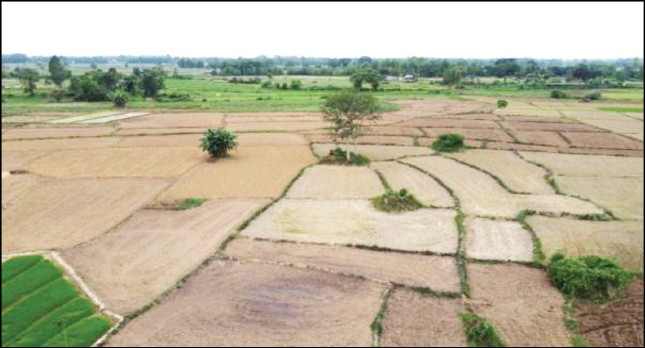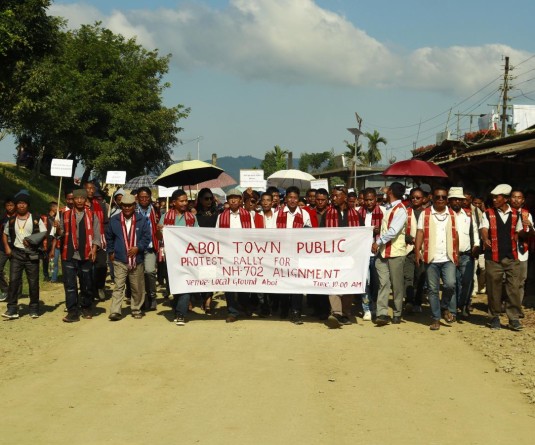A view of paddy fields that were affected by deficient rains in Medziphema subdivision under Dimapur district. (Photo Courtesy: Department of Agriculture)

Warns of acute shortfall in food grain production
Kohima, July 5 (MExN): The agriculture department of the Nagaland government has issued an advisory for the farmers in the state, asking them to prepare their main fields for paddy transplanting by adopting alternate seeding methods.
It also advised the farmers to go for early Rabi crop cultivation to compensate for kharif crop failure on account of the continued dry spell and shortage of rainfall in several parts of the state.
The advisory comes after the department officials conducted field visits and assessed the ground reality in the farming areas of Dimapur, Medziphema and Niuland on July 2 and 3. “Majority of the farm lands were found unprepared for paddy transplantation on account of dry spell and the shortage of rainfall, causing huge concerns at this critical stage,” the department stated in a press release on Monday.
Furthermore, in those fields that have gone for direct seeded rice, the crop germination was uneven and poor in health which will directly effect the production and productivity leading to low yield, it added.
In addition to preparing the main fields for paddy transplanting, the farmers were advised to adopt direct seeding method in case of nursery failure due to over aging of seedlings. Farmers were also encouraged to adopt System of Rice Intensification (SRI) and line transplanting, which are more suitable alternatives in times of scanty rainfall and other inadequate parameters for paddy cultivation. These methods would enable raising of seedlings within 8-12 days, it added. It also recommended that farmers opt for early Rabi crops cultivation to compensate for kharif crop failure and crop recovery.
The department has directed all the District Agriculture Officers and Sub Divisional Agricultural Officers to assess the agriculture situation in the state to formulate contingency plans, expedite weekly reports on crop status and to monitor and evaluate the agro-climatic conditions in addition to providing technical and input support to the farmers.
The next two weeks being crucial, and if the monsoon rain fails to arrive as scheduled, the state will face acute shortfall in food grain production, it cautioned.





